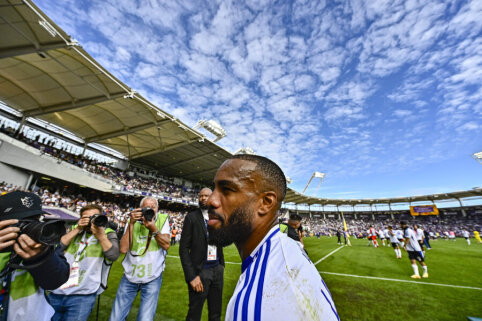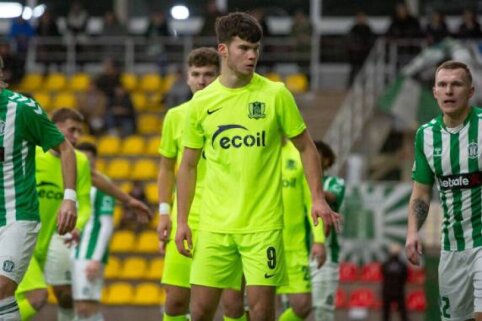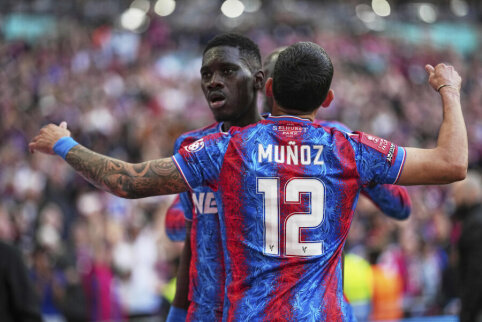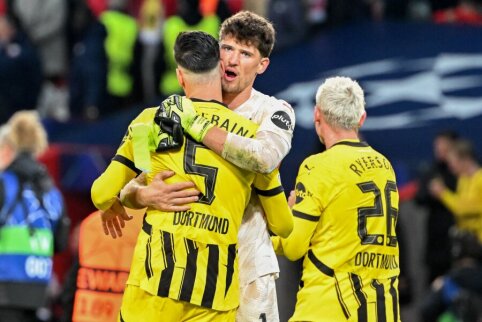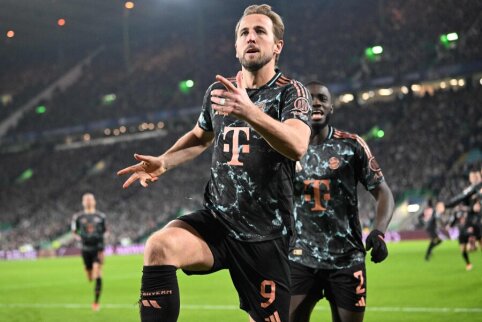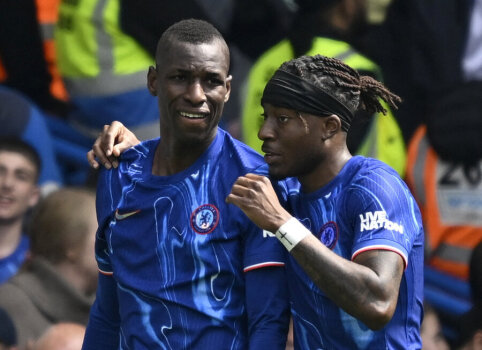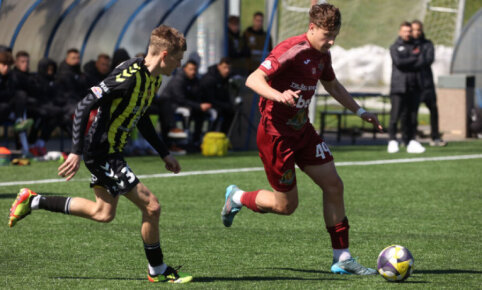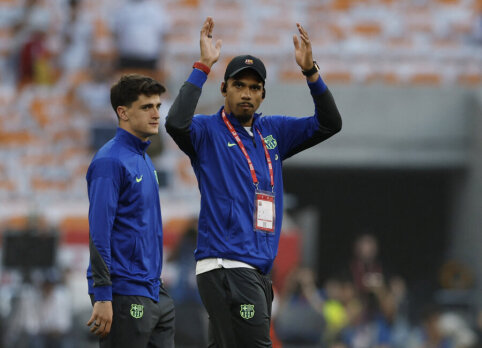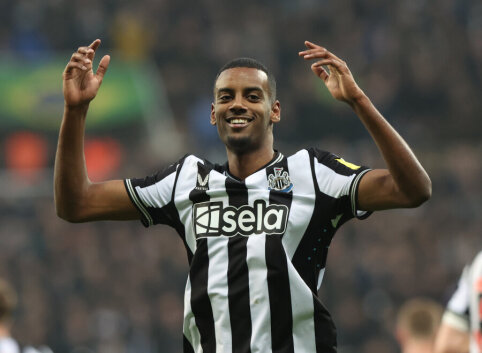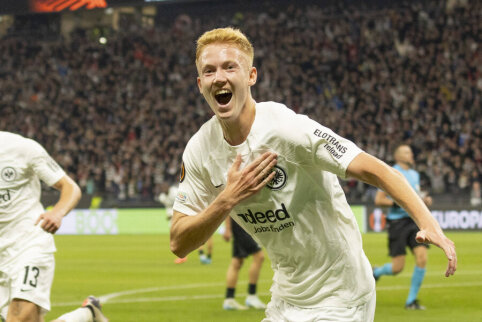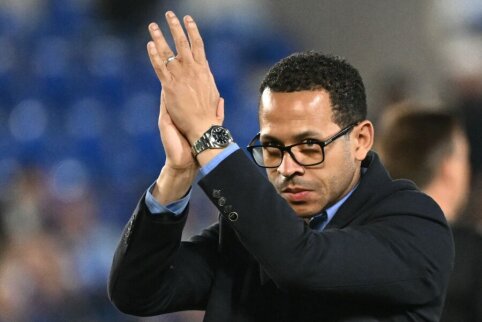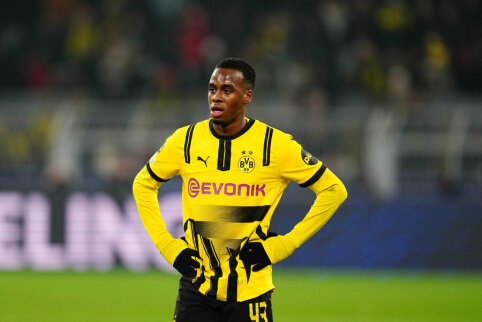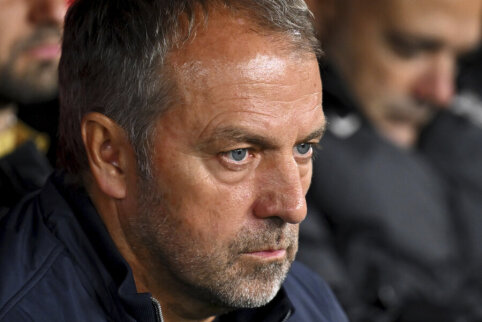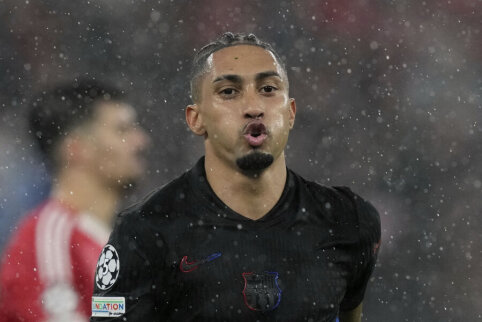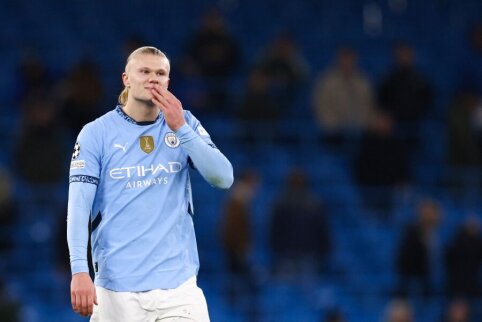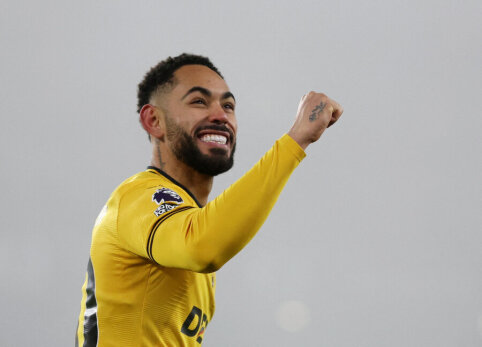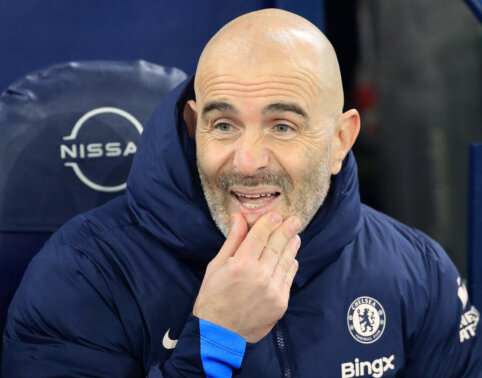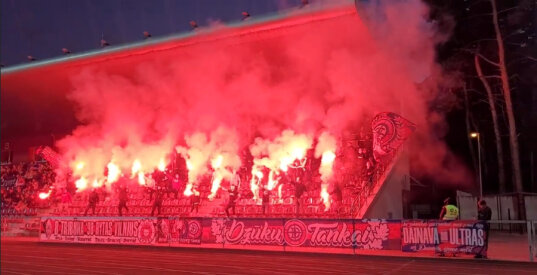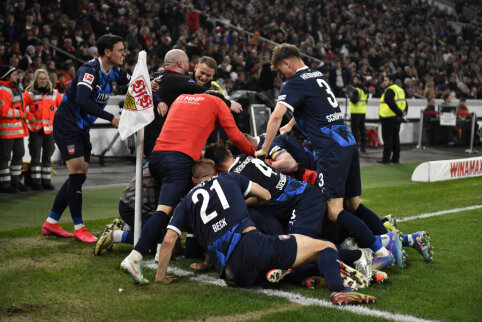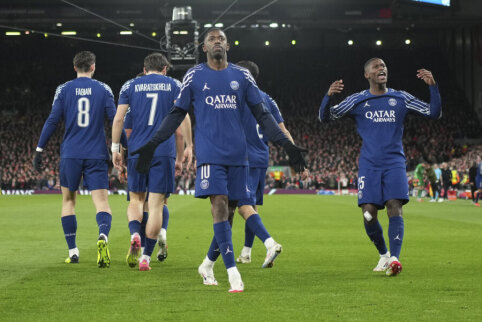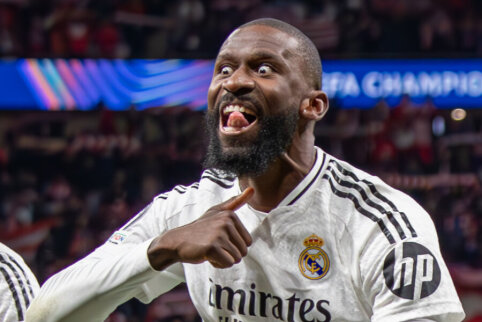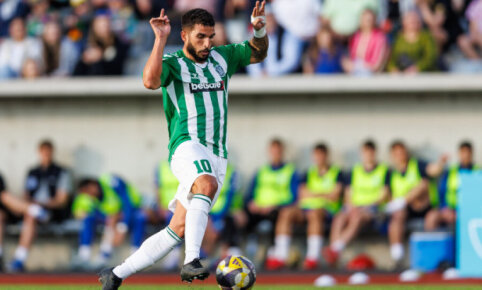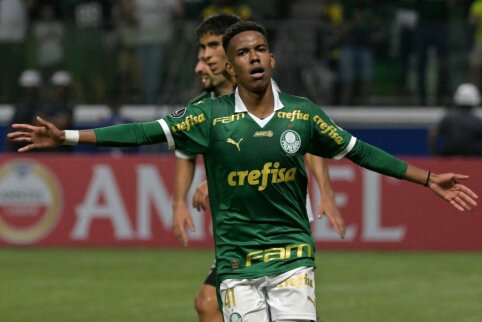 © EuroFootball.com
© EuroFootball.com
Contemporary Spanish football is famous not only for impressive ball control technique, players' tricks on the field, and abundance of goals. Not only because Spain is now considered the strongest football country in the world, and various national team age groups dominate the elite.
National country competitions have recorded more than one scandal, various funny and spicy stories, matches marked by signs of tragedy, and loss of young footballers.
The "Barcelona" fans portal [link="http://www.fcbarcelona.lt"]fcbarcelona.lt[/link] presents ten most memorable episodes of Spanish football in the 21st century.
10. Boixos Nois vs Brigadas Blanquiazules
2008. Barcelona derby. As it is known, in Spain football hooligans have long been settling their relationships on the streets, not in stadiums, but this time everything happened the other way around. The aggressive "Boixos Nois" ultras from "Barcelona" were outraged by the fact that fascist "Espanyol" fans from the "Brigadas Blanquiazules" group attacked and beat several "blue-and-granate" fans who were not part of the ultras group on Avenida Diagonal Street.
"Boixos Nois" immediately declared revenge for the unprovoked attack on innocent people. It was impossible to do it on the street, as it was teeming with numerous police forces completely controlling any movement of fans, so the only option left was to settle the matter at the "Espanyol" stadium.
During the match, the "Barcelona" fans, positioned on the upper terrace of the stands, easily overcame the resistance of a few security guards and approached the edge of the stands. The "Espanyol" fans were below. Soon, lit flares, trash, and broken stadium seats rained down on the heads of the "parakeet" fans.
Although the "Espanyol" club was not to blame for this incident, the Spanish Football Federation punished the home team - for failing to ensure security at their stadium.
9. Old friends
2010. "Barcelona" and Madrid "Real" are competing for first place in the league standings. In the 28th round of La Liga, Real Madrid plays away against Getafe, who confidently play at home and hold the sixth place based on the points they have earned at home.
During the first half-hour of the match, strange things happen on the field - "El Geta" plays as if it were a Terceros club, making mistakes at crucial moments, and giving away the ball to opponents in completely non-threatening situations. It turns into a farce - Real Madrid scores three goals in 20 minutes, and in the 37th minute, they score a fourth.
After the break, the hosts start playing completely differently, scoring two goals and losing the match with a score of 2:4.
It was clear that "Getafe" had become Real Madrid's "sleeping mat", as the capital's team had often sold their players to less successful "friends" for nominal sums. What's more, Getafe's team was coached that season by Míchel González, a member of the legendary "Butrón Five". It is a well-known fact that Getafe's president, Ángel Torres, is a socio of Real Madrid.
Catalan media caused a stir, and the usually modest Barcelona defender Seydou Keita directly stated that the "match was fixed." The conspiracy was not proven, but the stain remained. However, Real's deception did not help them - Barcelona became the Spanish champions.
8. About goats and champions
2006. Barcelona becomes the Spanish champion, overtaking Madrid "Real" in the league standings by even 12 points. At the celebration held at the Camp Nou stadium, Samuel Eto'o, who won the Pichichi title, starts a spontaneously created chant, "Real cabron, saluda al campeon!" ("Real bastard, greet the champion!").
Despite the fact that it sounded rude and, let's admit it, not very correct, this chant immediately became cultic among all Barcelona's fans. By the way, the interesting part is not the chant. Fans interested in Spanish football know very well that Samuel Eto'o started his European football career in Real Madrid's academy, and he played three official matches in the main team.
After such a stunt by Samuel Eto'o in Madrid, there was a wave of dissatisfaction, and Real officially demanded an apology from the player. The Cameroonian, of course, apologized and justified his actions by the emotions he was feeling at that time. However, it did not make it easier for the Real fans - the phrase remained a catchphrase, loved and joyfully chanted by all anti-Madridistas.
7. "Lions" Must Live
2007. Athletic Bilbao - hitting rock bottom. There is very little missing, and the legendary Primera club will drop to the second division of the country. In the last round, Athletic plays at home against Levante and cannot score the much-needed goal, even though the visitors spend almost an hour playing only in their own half.
In the 60th minute, Levante defender Jose Manuel Serano does "a favor" to the "lions" and redirects the ball into his own net during another attack. In the 77th minute, Igor Gabilondo doubles the lead, and Athletic celebrates a vital victory, securing their path to survival - they will continue to play in the Primera next season.
In 2008, former Levante captain Inaki Descarga mentioned in an interview that the match had been fixed in advance. However, neither team was punished. Why?
Rumors behind the scenes say that the Spanish Football Federation is not interested in Athletic's relegation to the second division. As it is known, the Bilbao club, along with Barcelona and Real Madrid, has never played in the Segunda and are the only three Spanish teams that can boast such an achievement. Tradition and prestige are more important, but at what cost?
6. Botellazo
2006. The great Andalusian derby between Sevilla and Real Betis is considered one of the fiercest in Spain. In the Copa del Rey quarter-final match, Betis fights against their eternal rivals at home and in the second half concedes a goal from Frederic Kanouté. The jubilation of the Sevilla team is, of course, proportional to the fury and disappointment of the Betis fans in the stands.
All sorts of trash pour onto the field, with the Sevilla reserves' bench being especially targeted.
It is not surprising that soon one of the "missiles" - a plastic drink bottle - hits Sevilla coach Juande Ramos on the head. The coach collapses as if hit and is hastily carried off the field. The match is interrupted, and soon Real Betis receives the verdict - to pay a fine and play the next home matches without fans. This means huge financial losses for the club, as they lose the right to sell tickets.
Furthermore, Sevilla soon releases an official statement that Juande Ramos has been diagnosed with a concussion.
Real Betis never officially apologized to their rivals, and the reaction of the "green-and-whites" fans was something like: "You have nothing to celebrate if you are not at home".
5. Real's Infamous Trick
2008. At Real Madrid's General Assembly on December 7, the then-president Ramon Calderon organizes the decision-making of several important matters for his benefit. Among them - a vote on the grandiose budget.
At first glance, nothing unusual happens, but on December 16, the influential newspaper "Marca" publishes sensational information. According to the publication, ten people who had nothing to do with either the socio status of Real or the club itself attended the assembly and voted in favor of Ramon Calderon. Most shockingly, it turns out that one of the voters was a socio of Atletico Madrid. His membership card was even presented.
"Marca" strikes so convincingly that soon the Real Junta Directiva urgently convenes a meeting and removes Ramon Calderon from the presidency. The latter tries to justify himself and lays the blame on his aides, but the "motives" of the ousted boss remain unheard.
4. Niam niam...
2001. At Sevilla's Ramon Sanchez Pizjuan Stadium, Sevilla face Real Valladolid and brutally crush the opponents with a score of 4-0. One of the goals in those matches was scored by the then young and promising eighteen-year-old Jose Antonio Reyes.
After falling to the ground and being taken into the arms of friends, the young Andalusian talent soon feels someone... biting his penis. Television cameras capture the moment when Sevilla's players are approached by their teammate Francisco "Paco" Gallardo, who bites Jose Antonio Reyes.
"I just wanted to encourage Jose," F. Gallardo later justified in an interview.
Of course, Jose Antonio Reyes also faced a wave of mockery, but it's unclear whether this incident influenced the young footballer's career. Jose Antonio Reyes started his career as a forward but switched to a defensive position after the events of 2001.
Completely understandable, as defenders score fewer goals ;)
3. The Hunt for L. Figo
2002. El Clasico battle between Barcelona and Real Madrid. Camp Nou stadium is preparing to welcome Portuguese star Luis Figo, who dared to move to the camp of mortal enemies two years ago.
Enraged Barcelona fans spent the entire 90 minutes throwing everything they could get their hands on - coins, nuts, golf balls, mobile phones, pieces of brick, knives. A bottle of whiskey even flew towards L. Figo, and the climax at Camp Nou was when a pig's head was thrown at him.
Not surprisingly, matches were interrupted three times due to riots and disorder.
Barcelona fans burned rubber dolls dressed as L. Figo with sex-shop accessories, waved derogatory banners and cursed posters, and chanted "Figo, Puta".
It was not a duel between Barcelona and Real Madrid, but a war between L. Figo and the Camp Nou stands.
After the match, Real officially demanded that Barcelona's stadium be disqualified. No one dared to do so.
The fans burned dolls in L. Figo shirts, clapped in applause at the stadium, waved derogatory banners and chanted jingles, understanding gesture did not help the real - Spain's champions became Barcelona.
2. Mortal Enemies, Mortal Friends
2009. During a summer camp in Florence, Espanyol. The then captain, Daniel Jarque, talks on the phone with his life partner remaining in Barcelona and suddenly collapses in his hotel room. His teammates rush to help, but all their efforts are in vain - the 26-year-old footballer dies from a heart attack.
2010. During the World Cup final match in South Africa between Spain and the Netherlands. In the 116th minute of extra time, Barcelona defender Andrés Iniesta scores the crucial goal that will forever glorify his team.
The triumphant footballer removes his official national team jersey and shows the message on a simple undershirt to millions of viewers worldwide - "Dani Jarque siempre con nosotros" ("Dani Jarque always with us").
Upon returning to Barcelona, Andrés Iniesta gives these shirts as a gift to the Espanyol club, and they can now be seen in the parakeet's team museum. The Espanyol fans, who used to taunt the Barcelona players, vowed to forget the hatred and to cheer on Iniesta until the end of his career. In the first Espanyol match with Barcelona, the "blue and whites" fans came to the stadium with thank you posters and Espanyol jerseys with the number 21 and Iniesta's name.
Moreover, from then on, Espanyol fans give ovations every 21st minute of each match - wearing shirts marked with the number 21, Aitoras Antonio, the son of A. Puerta, is born two months after his father's death. Sevilla presents the baby with a lifetime subscription to all the team's matches, and in case little Aitoras grows up to become a professional footballer, they promised to give him the shirts marked with the number 16, worn by A. Puerta, Aitoras' father...
1. Number 16 - Until Death
2008. The first round of the Spanish league, where Sevilla plays at their stadium against Getafe. Antonio Puerta, the 22-year-old Andalusian defender, who recently played his first matches for the Spanish national team, suddenly collapses on the penalty area.
The goalkeeper Andrés Palop and the defender Ivica Dragutinović are the first to realize that something terrible has happened and rush to help their teammate. They try with all their might to loosen Antonio Puerta's clenched jaw - the most important thing was to prevent the fallen player from biting his tongue.
Shocked spectators in the stadium and on television screens witness Antonio Puerta standing up and being escorted out of the field. He had just suffered a heart attack.
A second heart attack hits the player in the dressing room, and he is quickly taken to a hospital in Seville. The efforts of the medics were in vain - after three days, the footballer passed away.
During the player's funeral, an incomprehensible scene takes place - Sevilla and Real Betis fans, who generally detest each other, cry together, united by the loss. It is often said that even enemies are united by loss.
Antonio's son, Aitor Antonio, is born two months after his father's death. Sevilla presents the child with a lifetime subscription to all the team's matches, and in case little Aitor Antonio grows up to become a professional footballer, they promised to give him the shirts marked with the number 16, worn by A. Puerta, the child's father...
